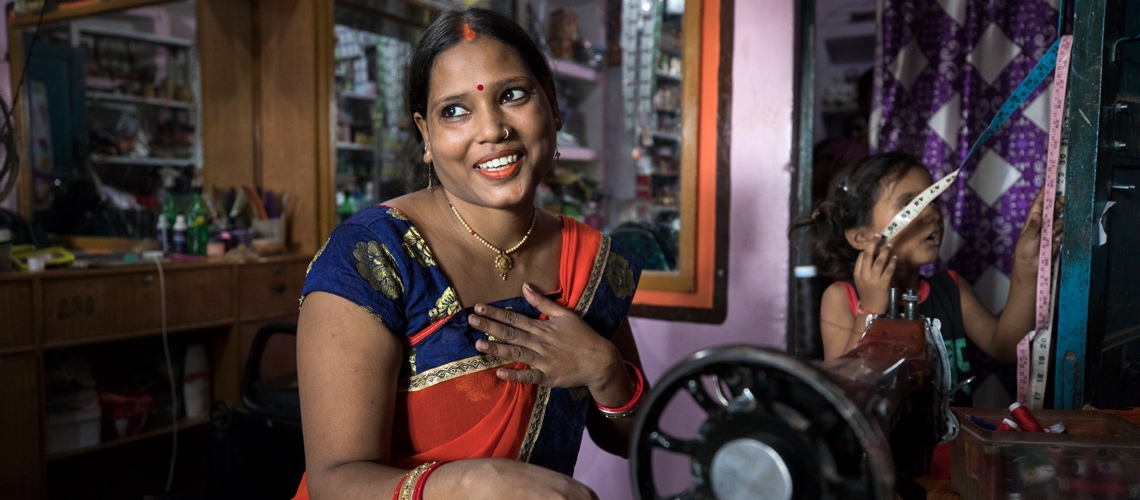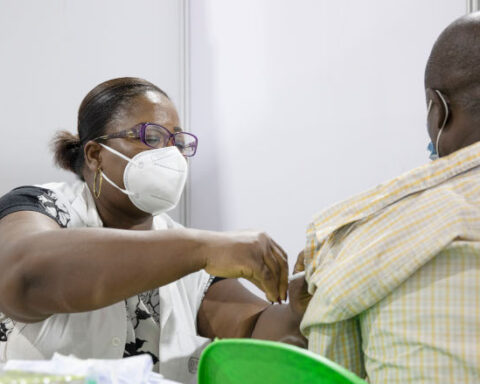The pandemic has been anything but business as usual for women entrepreneurs. Women entrepreneurs have sacrificed more time than men to undertake unpaid care during COVID-19, and their businesses have received less public support than those run by men. Unsurprisingly, this uneven support and uneven share of care have gone hand in hand with a greater risk of women-led businesses closing down, a review of new data by World Bank economists shows. This has raised concerns that COVID-19 could undo years of progress for women entrepreneurs. Setbacks from COVID-19 for women entrepreneurs in low- and middle-income countries have been severe.
The World Bank’s Enterprise Survey dashboard (March 2021 version) indicates that women-led businesses have generally seen larger declines in sales and profits during the COVID-19 pandemic, and they have been more likely to close down (at least temporarily) in 12 out of 18 countries. In 11 out of 18 countries women-led enterprises reported shorter survival durations than men-led enterprises. Similarly, a forthcoming World Bank paper, which combines Enterprise Survey and Busines Pulse Survey data for an in-depth study of 49 mostly low and middle-income countries, shows that women-led businesses were disproportionately affected by the pandemic, especially among micro-businesses and businesses in the hospitality industry.
To understand how the COVID-19 pandemic has impacted women-led businesses, let’s start with some startling facts from a recent review of new data indicating that women in the workforce, including entrepreneurs, have suffered major setbacks in three key areas.
First, in many countries, sectors of the economy that employ a disproportionate share of women have been hardest hit, including tourism, hospitality, and retail. A study in Latin America and the Caribbean shows that female-intensive sectors—trade, personal services, education, and hospitality— explain 56 percent of all job losses between May and August 2020. The Future of Business Surveyshows that women-led firms are concentrated in consumer-facing sectors (e.g. services, hospitality, education and child care services) where the pandemic shock was hitting the hardest, which is probably one of the reasons why such firms were found more likely to be closed than men-led firmsduring the early stages of the pandemic. Research by the World Bank’s Africa Gender Innovation Labalso highlights that women entrepreneurs in Sub-Saharan Africa are more often engaged in low paying activities than men entrepreneurs, which limits their saving capacity and therefore their resilience when faced with shocks.
Second, women have shouldered a disproportionate burden of unpaid work. The economic and social impact of this is pronounced. Even prior to the pandemic, UN estimates, based on data for six countries, showed that assigning women’s unpaid work a monetary value would add between 10 and 39 percent to a country’s GDP. This situation has worsened during COVID-19. The global data and analyses generated over the last 12 months confirm that women were more likely to report an increase in time spent on unpaid care and domestic work due to COVID-19. They were also more likely than men to report being responsible for unpaid childcare, unpaid adult care, and unpaid domestic work. Women, whether employees or entrepreneurs, paid a high price for shouldering this burden. In the Future of Business Survey, female business leaders were around 10 percentage points more likely than male business leaders to report that caring for children, home schooling, and household chores were affecting their ability to focus on work.
The third setback has been less support for women entrepreneurs than for businesses run by men. The analysis of Business Pulse and Enterprise Survey data shows that women-led business, particularly micro-enterprises, were less likely to report access to public support than men-led businesses, even though they were more negatively affected. In Ethiopia, while women-owned businesses were disproportionally affected by the COVID-19 pandemic, less than 1 percent received any type of government support during the first few months of the pandemic.
While more research is needed to gauge if these setbacks will be short-term or longer-lasting, support is critical in the recovery phase. The WBG has identified three specific areas where greater efforts are needed (see The World Bank’s Female Entrepreneurship Resource Point and the priority policy actions outlined in Building Back Better from COVID-19: Boosting Women’s Entrepreneurship).
To begin with, finance is critical for women-led businesses to not just survive but to thrive. To that end, the World Bank Group announced two new initiatives to improve access to start-up financing and e-commerce markets for women entrepreneurs, at the Women Entrepreneurs Finance Initiative (We-Fi) Middle East and North Africa Summit in 2020.
Next, more investment is urgently needed to increase access to affordable and quality childcare. As highlighted in a recent World Bank report, investments in childcare are a promising avenue to enhance women’s labour force participation and productivity. The pandemic further reinforced this message, as families all around the world have been struggling to balance work and childcare at times when schools and childcare centres were largely closed.
Finally, more needs to be done to remove legal obstacles standing in the way of women entrepreneurs. As highlighted by World Bank Group’s Women, Business and the Law 2021 reportand database, many laws – such a s legal restrictions on owning and managing property or opening a bank account – continue to hamper women’s ability to set up, operate and grow a business.
The enormous setback driven by the pandemic calls for redoubled efforts not only to close gender gaps, but to ensure they do not widen. This crisis has laid bare gender inequalities in entrepreneurship which remain unfinished business.






